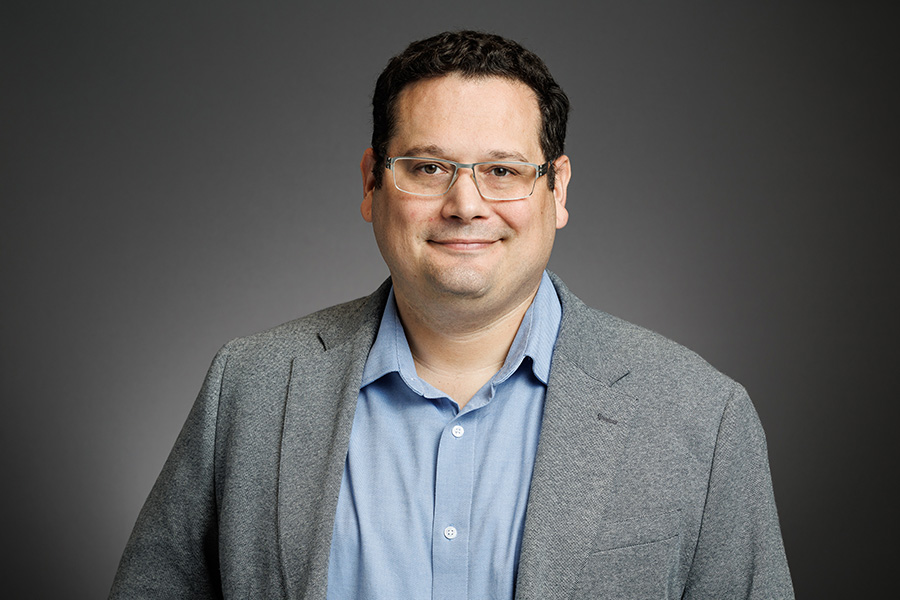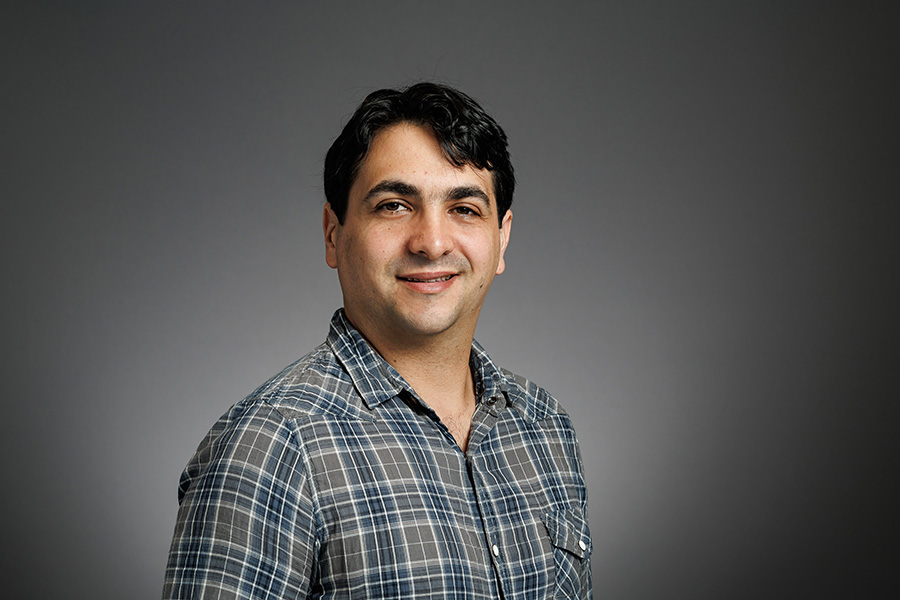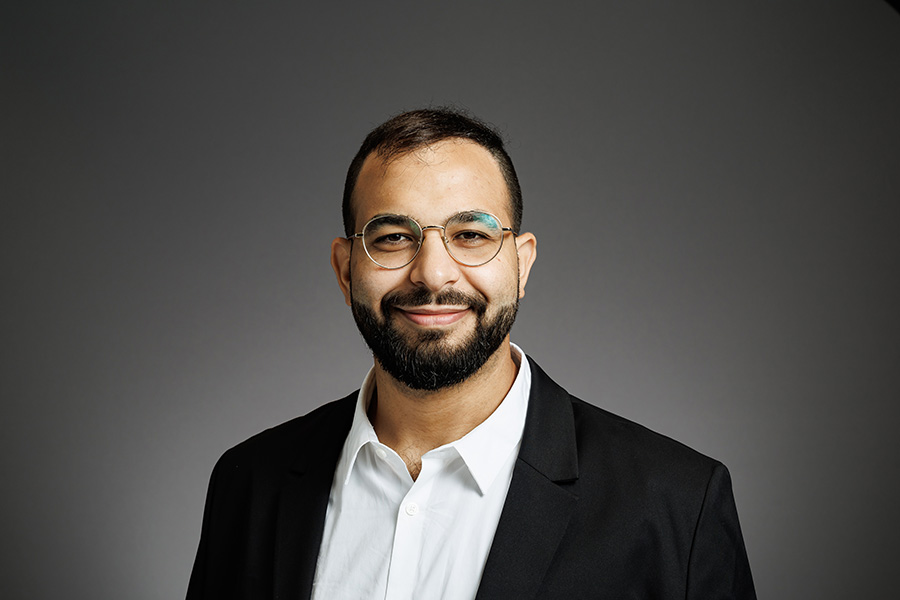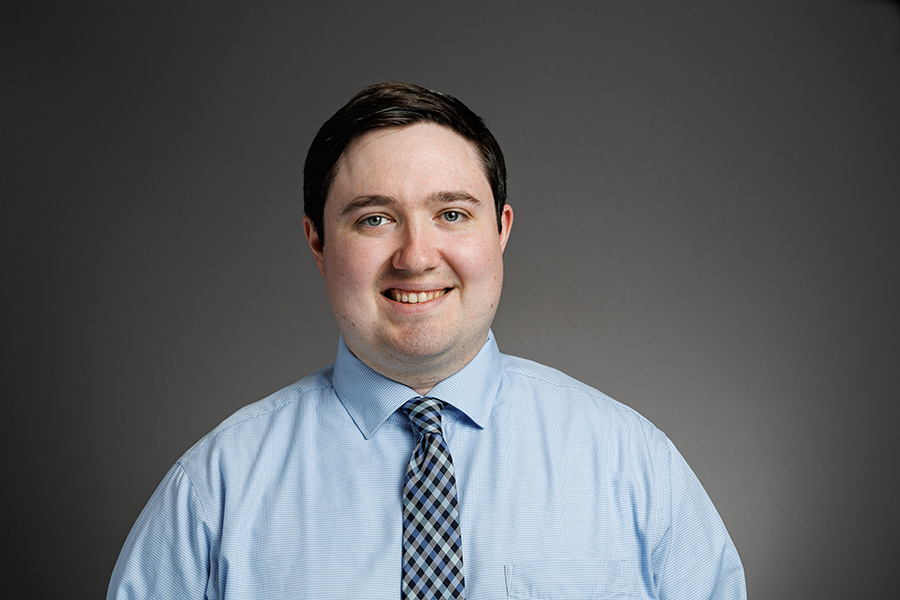Yale Engineering Welcomes Eight New Faculty Members

Yale Engineering is proud to announce the arrival of an exceptional cohort of new faculty members this fall. These distinguished scholars bring expertise in cutting-edge fields, including quantum computing, innovative materials for energy and climate solutions, personalized cardiovascular modeling, advanced data processing, and correlated quantum matter research. Their addition will open even more avenues for multidisciplinary collaboration and groundbreaking research, addressing critical technological and environmental challenges of our era. Learn more about our newest faculty members below.

|
Michael Hatridge
Associate Professor of Applied Physics
Michael Hatridge's research focuses on how to control and measure quantum systems, typically superconducting qubits. For quantum measurement experiments, his group uses parametric amplifiers to both generate squeezed light, which they use to interrogate quantum systems, and read that light out faithfully, that is with noise dominated by quantum fluctuations in the system they are studying. His group also explores the use of parametric drives and processes to control quantum systems, for instance by connecting networks of qubits with SNAIL couplers, where they focus on building systems that are 'big enough' in terms of size and 'strange enough' in terms of operation to chart new paths towards error-correctable quantum hardware.

|
Liangbing Hu
Carol and Douglas Melamed Professor of Electrical & Computer Engineering
Liangbing Hu's research focuses on materials innovations, manufacturing, and device integrations, with a particular focus on emerging technologies to address the energy and climate challenges. His ongoing research activities include electrified ultrahigh-temperature synthesis and manufacturing (e.g., catalysts, membranes, semiconductors, ceramics, metals, and materials for extreme environments), electrochemical energy storage (e.g., solid-state batteries for transportation and the grid), wood nanoscience and nanotechnologies (e.g., super wood and transparent wood for modern buildings), and decarbonization technologies.

|
Aleksander Kubica
Assistant Professor of Applied Physics
Aleksander Kubica is interested in the theoretical aspects of quantum information science, including quantum computation, quantum error correction and quantum metrology. One of the central topics of Kubica's research is the concept of fault-tolerant quantum computers that are capable of executing quantum algorithms even if some of their constituent components malfunction. He has been laying the theoretical foundations of how to build quantum computers and make them more resource-efficient. Kubica is also excited about the intersection of quantum information science and quantum many-body physics, in particular topological codes and exotic phases of matter.

|
Boris Landa
Assistant Professor of Electrical & Computer Engineering
Boris Landa's research lies at the intersection of statistical signal processing and applied mathematics, focusing on developing theoretical and computational tools for data processing and analysis. His work aims to address real-world challenges prevalent across science and engineering, such as high dimensionality, noise, deformations, and heterogeneity in data. Landa's research interests include detecting and recovering multivariate signals under noise with unknown characteristics, robust nonlinear analysis of high-dimensional data, and integration of heterogeneous data from diverse sources and modalities. He focuses on creating scalable methods with theoretical guarantees, working closely with practitioners to advance data-driven innovation and scientific discovery.

|
Martin Pfaller
Assistant Professor of Biomedical Engineering
Martin Pfaller develops personalized models of the cardiovascular system. His vision is to predict the progression of heart disease, prevent heart failure by identifying at-risk patients early, and optimize therapies. His research studies how the heart and blood vessels adapt to long-term changes in biomechanical loads. He uses computational fluid dynamics to analyze the interaction between blood flow and tissue biomechanics. In addition to three-dimensional continuum models, he develops fast yet accurate physics-based and data-driven reduced-order models. His tools include probabilistic methods that quantify the uncertainty inherent to all computational biomechanics models.

|
John Sous
Assistant Professor of Applied Physics
John Sous focuses on the study of systems with many degrees of freedom in which correlations act to stabilize novel behavior with functionalities that can be utilized in future-generation technologies, including but not limited to energy materials. The goal of this research is to gain a general, unifying understanding of interacting statistical systems. Specific examples include correlated quantum matter (quantum materials and ultracold atoms & molecules) and dynamical non-linear systems (optically driven quantum systems and models of learning). As a recent research highlight, Sous discovered a new mechanism through which vibrations in a solid can mediate superconductivity at high temperatures. He is currently developing a theory for light-induced electronic states in materials strongly irradiated with intense optical pulses.

|
Michael Shah
Senior Lecturer in Computer Science
Mike Shah's current research focus is in computer graphics, investigating data structures that dynamically change the level-of-detail of 3D objects in real-time graphics applications to improve performance. Mike also concurrently publishes research in computer science education related to teaching graphics and software engineering. His primary teaching interests are in computer graphics, building game engines, and systems programming. Prior to Yale, Mike was an Associate Teaching Professor and Area Chair of Teaching Innovation at Northeastern University, and occasionally consulted in industry as a Senior 3D Graphics Programmer.

|
Colby Buehler
Lecturer in Chemical & Environmental Engineering
Colby Buehler's teaching efforts focus on implementing research-proven pedagogical methods to further engage students in developing chemical and environmental engineering skillsets so that they can tackle the next generation of scientific problems. In addition, Buehler looks forward to mentoring various talented undergraduate organizations (such as AIChE ChemE Car, Environmental Engineering Club, and Engineers Without Borders) that bring together students across disciplines in an effort to enhance their already engaging and impactful projects.

